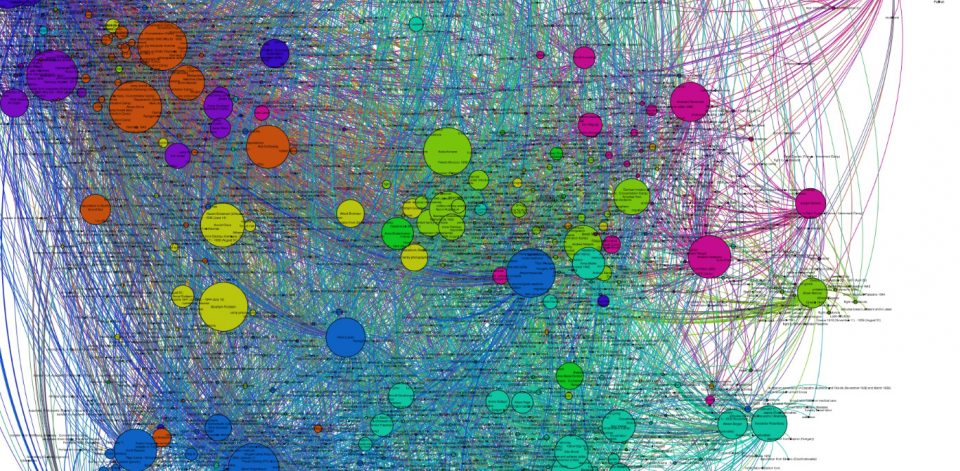 Website: http://germanic.ucla.edu/person/todd-presner/
Principal Investigator(s): Prof. Todd Presner, Germanic
Website: http://germanic.ucla.edu/person/todd-presner/
Principal Investigator(s): Prof. Todd Presner, Germanic
Todd Presner, as part of his research into the terrible aftermath of genocide, investigates the ways computational tools and digital archives can help us preserve memory, ask new historical questions, and understand the various roles of survivor testimony. His work focuses especially on the Shoah Foundation’s Visual History Archive (https://sfi.usc.edu/), the largest video archive of survivor testimonies of the Holocaust (Jews, Sinti and Roma, political prisoners, Jehovah’s witnesses, and homosexuals) as well as testimonies by survivors of the Armenian genocide, the Rwandan genocide, and the Nanjing Massacres. As much as possible, he brings that research into his undergraduate classes: students who work with him (e.g., in Spring 2016 German 110/Digital Humanities 150, or Spring 2018 DH 199) learn about the history of technologies for creating, capturing, and preserving testimony of human atrocities; study the production and transformation of testimonies through new digital and web-based, indexing technologies; deploy tools for computationally analyzing testimonies; and design new interfaces and digital archives for ethically preserving and transmitting the memories of atrocities.
In support of his planned Spring 2018 DH 199 capstone, HumTech staff will be helping Todd interpret a new data set recently made available by the Shoah Foundation, and will be providing training and support in data filtering and visualization tools to his students, who will be working directly with the Shoah Foundation data. Given the fact that genocide is not something in the distant past, but very much part of our contemporary world and, in all likelihood, the future, too, the questions of how we learn from the past, archive the memories of the past, and analyze the meaning of testimony are critically urgent. And given that the knowledge, archives, and analyses will deploy computational tools more and more, the class focuses on the memory and meaning of genocide in the 21st century.
